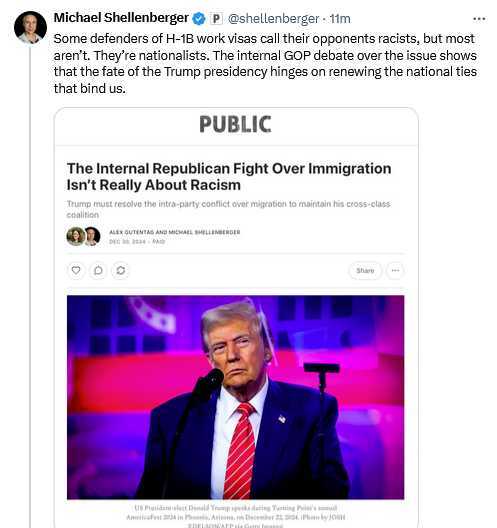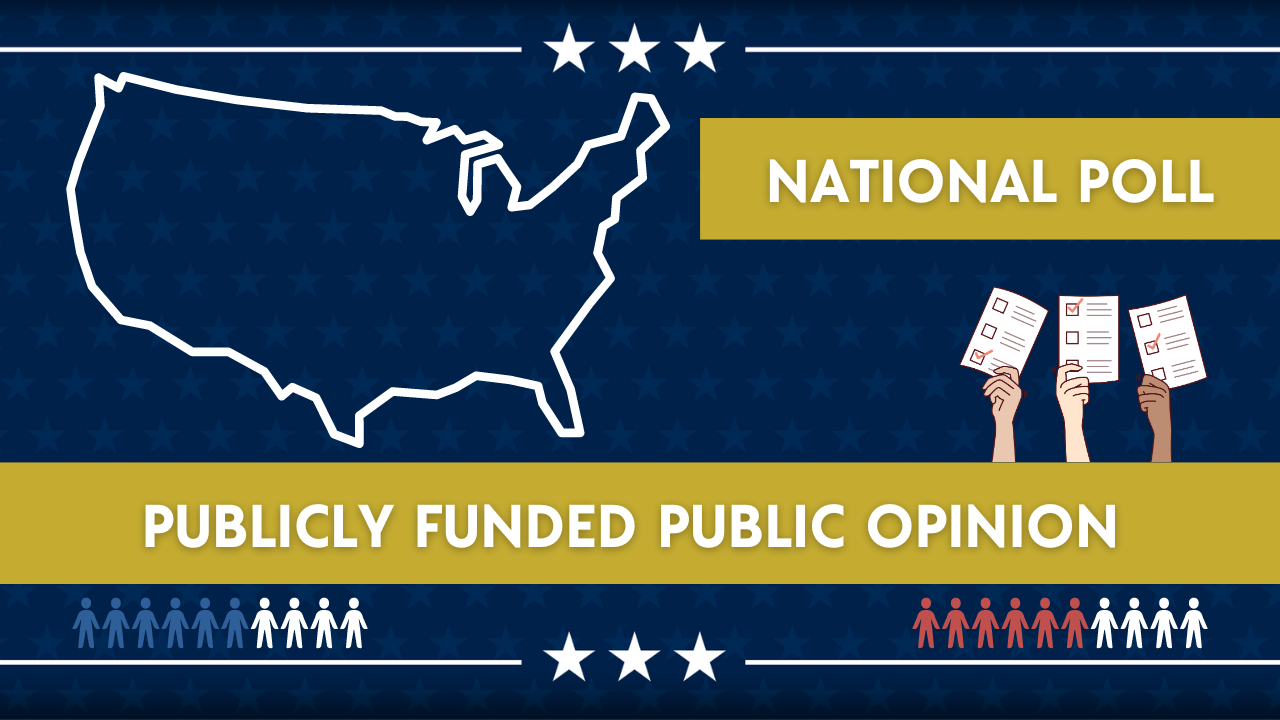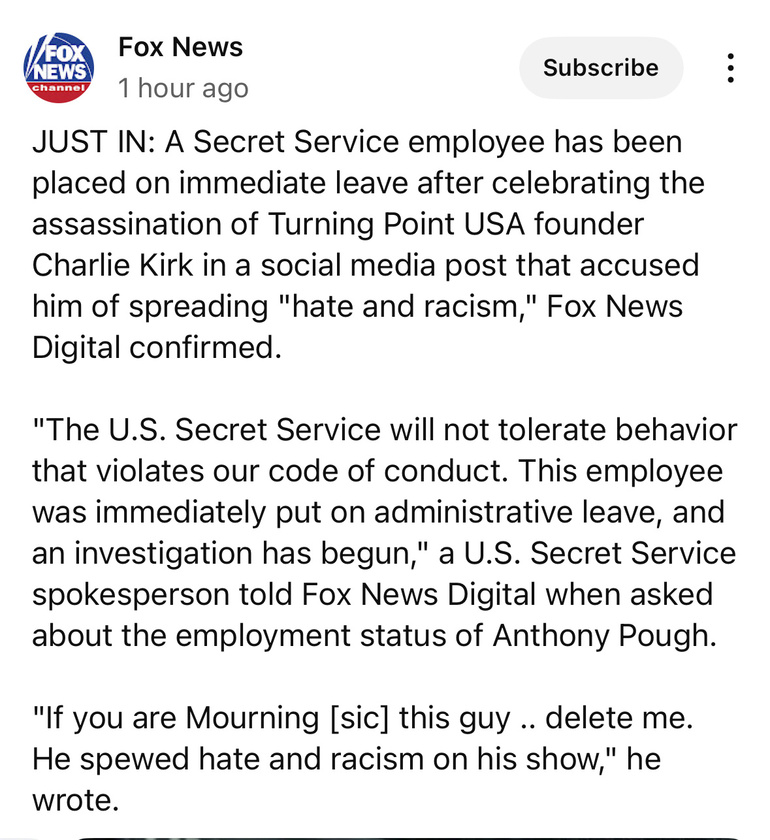"For decades, many progressives, Democrats, and others on the Left have argued that Republicans were racist for criticizing the mass migration of unskilled, non-college-educated workers from foreign countries. Around 2016, Democratic leaders, who had recognized the need for border control a few years earlier, increasingly denounced Republicans and Trump supporters as white supremacists.
But the vast majority of those people weren’t racists at all, and they were rightly concerned about the downward pressure of mass migration on the wages of non-college-educated people, the high economic costs of mass migration, and the societal divisions it creates.
Over the past week, many conservatives, Republicans, and others on the Right have similarly argued that critics of mass migration by skilled, college-educated workers from foreign countries are racists. President Donald J. Trump and other Republican leaders, including those who have criticized mass low-skilled migration for the last decade, defended the expansive use of H-1B visas for skilled, college-educated workers. Some Trump allies demonized Republican critics of high-skilled migration as white supremacists.
Although some online commentators have expressed racist views, the vast majority of the H-1B program’s critics have consistently made economic, not race-based, arguments against the program. Like critics of mass low-skilled migration they are rightly concerned about the downward pressure of the H-1B system on wages, in this case of college-educated Americans in tech, as well as the societal costs of H-1B visa abuse and misuse.
The overheated conflict between Republicans over H-1B visas for skilled foreign migrants may resolve itself. Last week, President-elect Donald Trump said, “I have many H-1B visas on my properties. I’ve been a believer in H-1B. I have used it many times. It’s a great program.” Then, Trump advisors Elon Musk and David Sacks said they supported changing the rules around H-1B visas to raise the minimum salary and to make it more expensive to hire a foreign worker than an American citizen.
And yet the tempers between the protagonists of the debate today remain as high as ever, particularly on Musk’s X. Republicans who are more supportive of the migration of high-skilled workers are still accusing their opponents of engaging in racism and white identity politics, while Republicans who favor a more restrictive policy are accusing their opponents of selling out their fellow Americans for a cheap buck.
A lot of the excess heat over this issue is driven by some combination of a slow news period, holiday boredom, and the greater attention people naturally pay to conflicts among ostensible friends and allies than to conflicts between political competitors.
But the highly intense, emotional, and polarizing quality of the debate on the H-1B visa reveals a serious division within the Republican Party between its pro-business and nationalist wings — one that risks undermining the Trump presidency.
Nationalism, and in particular the protection of American jobs from foreign competition, has been central to Trump’s appeal and to his transformation of the Republican Party since 2016. Americans elected Trump to protect them from the effects of mass migration, in large measure for economic reasons, out of recognition that open border policies drive down working-class wages. It’s true that immigrants have always played a large role in shaping American culture and driving innovation. At the same time, many citizens have reasonable concerns about the economic effects of globalization on both the working and middle classes. The foreign-born share of the American population is at its highest level in over a century, and MAGA voters have repeatedly shown that they will not fall in line with the views of the party’s business leaders for the simple reason that they view mass migration as an existential threat to America’s future.
Support from the business community in general, and the high-tech community in particular, was crucial to getting Trump elected. Republicans need to maintain that support, both if they are to stay in power and if they are to govern. Democrats outspent Republicans in the 2024 elections, thanks to their support from unions, government employees, and much of the business world. Republicans thus need to expand, not shrink, their influence among entrepreneurs within the business world.
In office, Trump will need to find a way to bridge the intraparty divide over the specific H-1B visa question. The Musk and Sacks compromise may satisfy Trump’s nationalist base, particularly if he follows through on the other commitments he has made to them. Or, given the harshly negative reaction among Trump supporters to H-1B supporters, and the continued accusations of racism directed toward the MAGA base, the problem may prove more difficult to solve.
And a range of other questions, including over domestic manufacturing, the strength of the dollar, US trade policies, and relations with China may trigger similar fights in the coming months and years among the same nationalist and pro-business factions.
Please subscribe now to support Public's award-winning reporting and to read the rest of the article!"
https://x.com/shellenberger/status/1873775605533336035





















